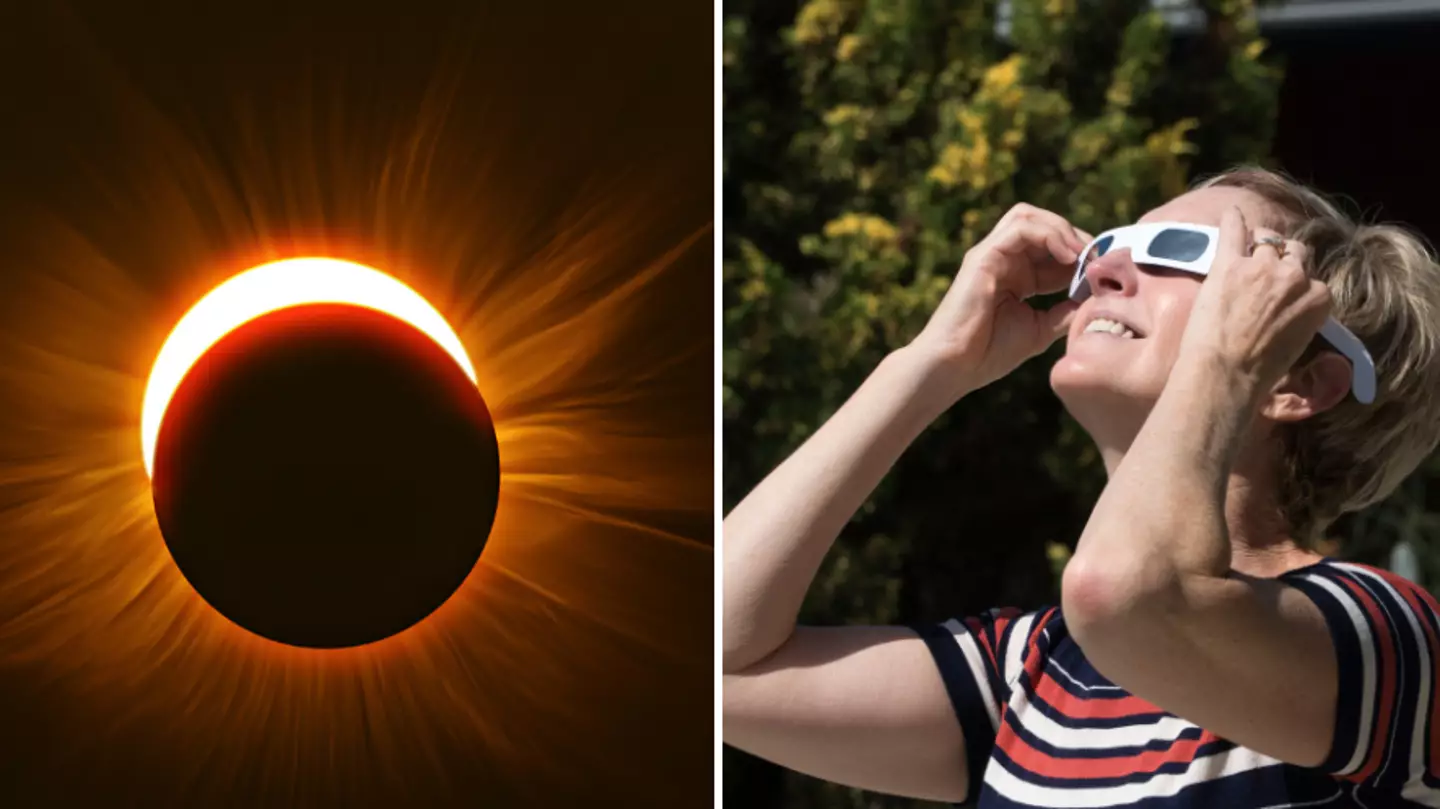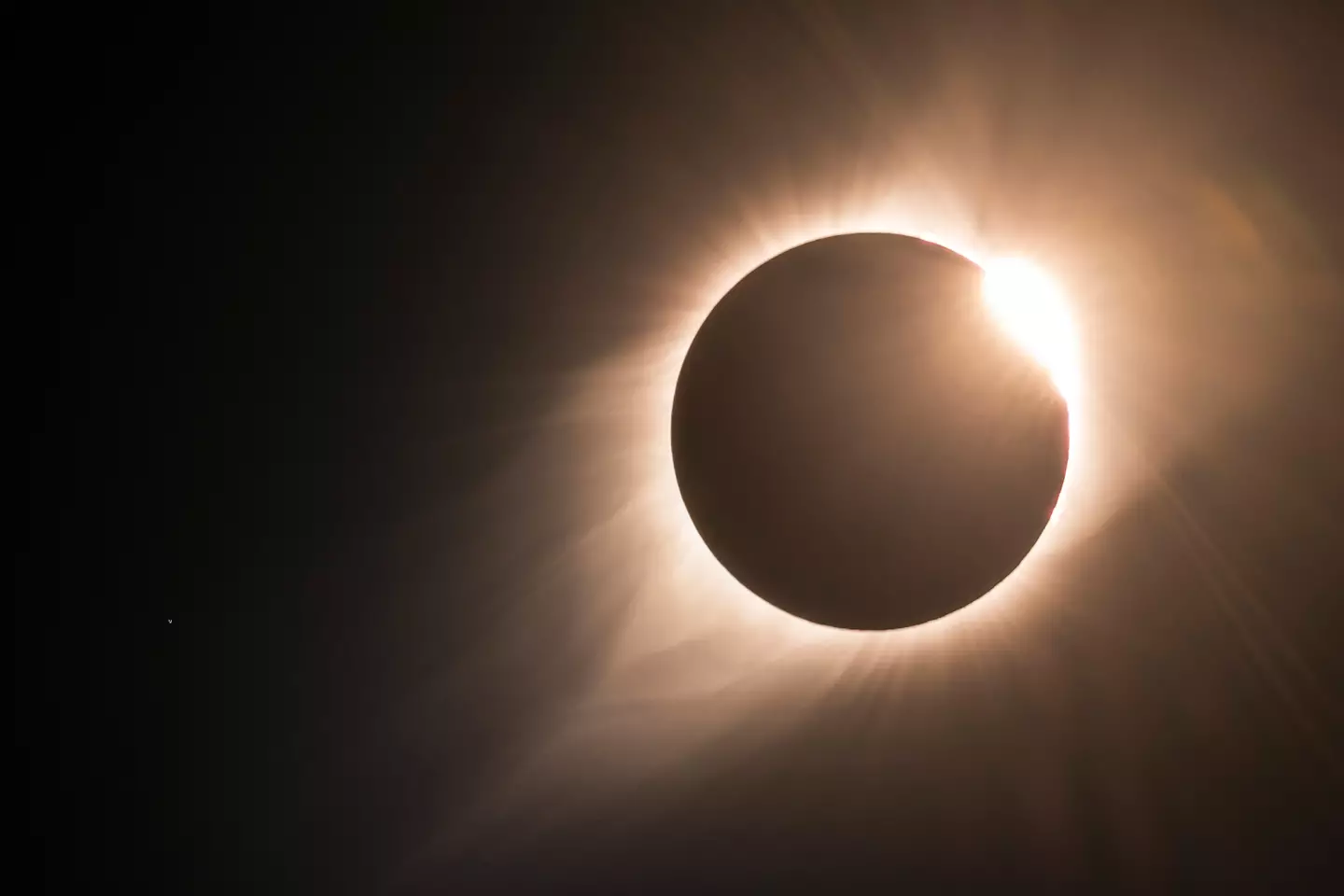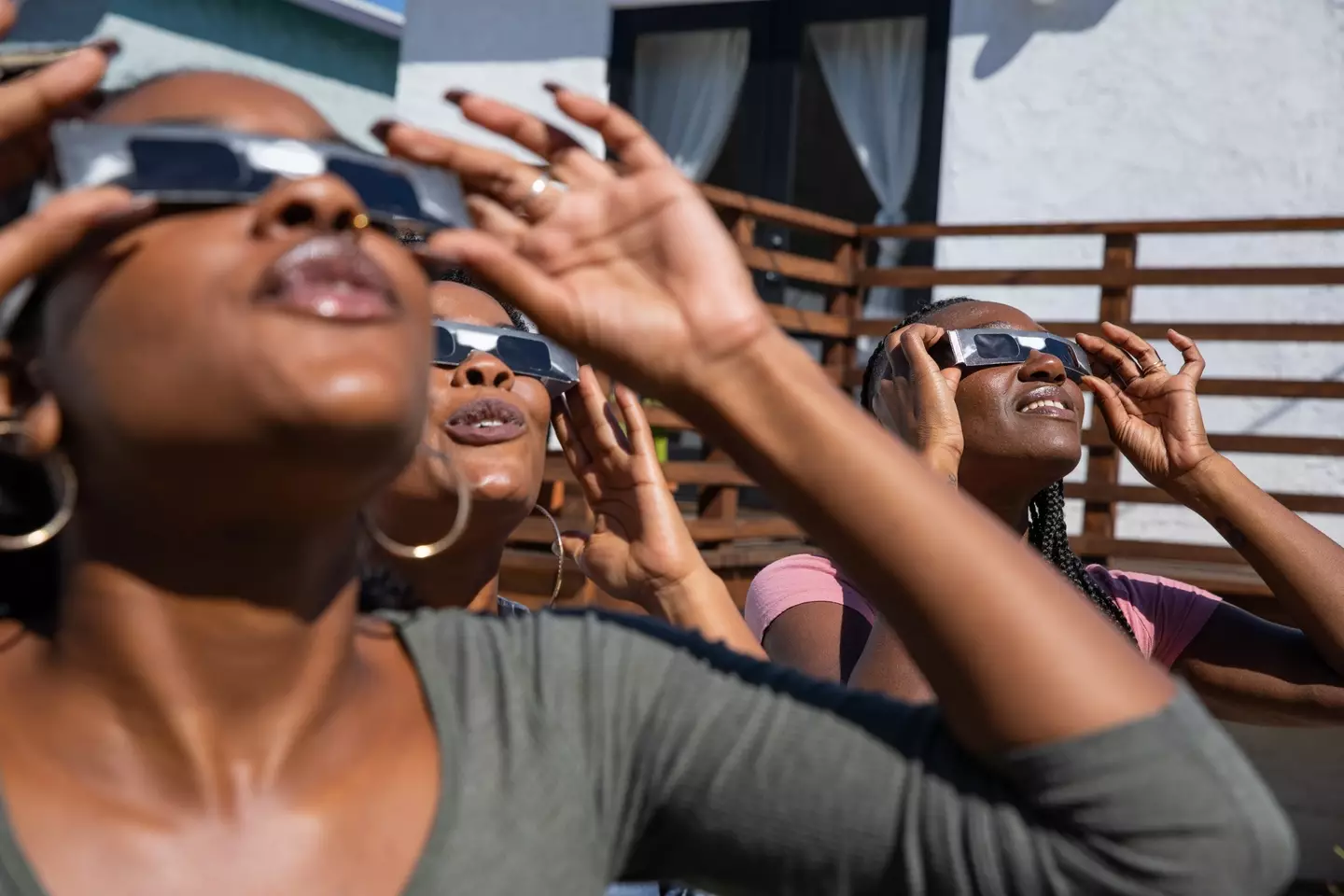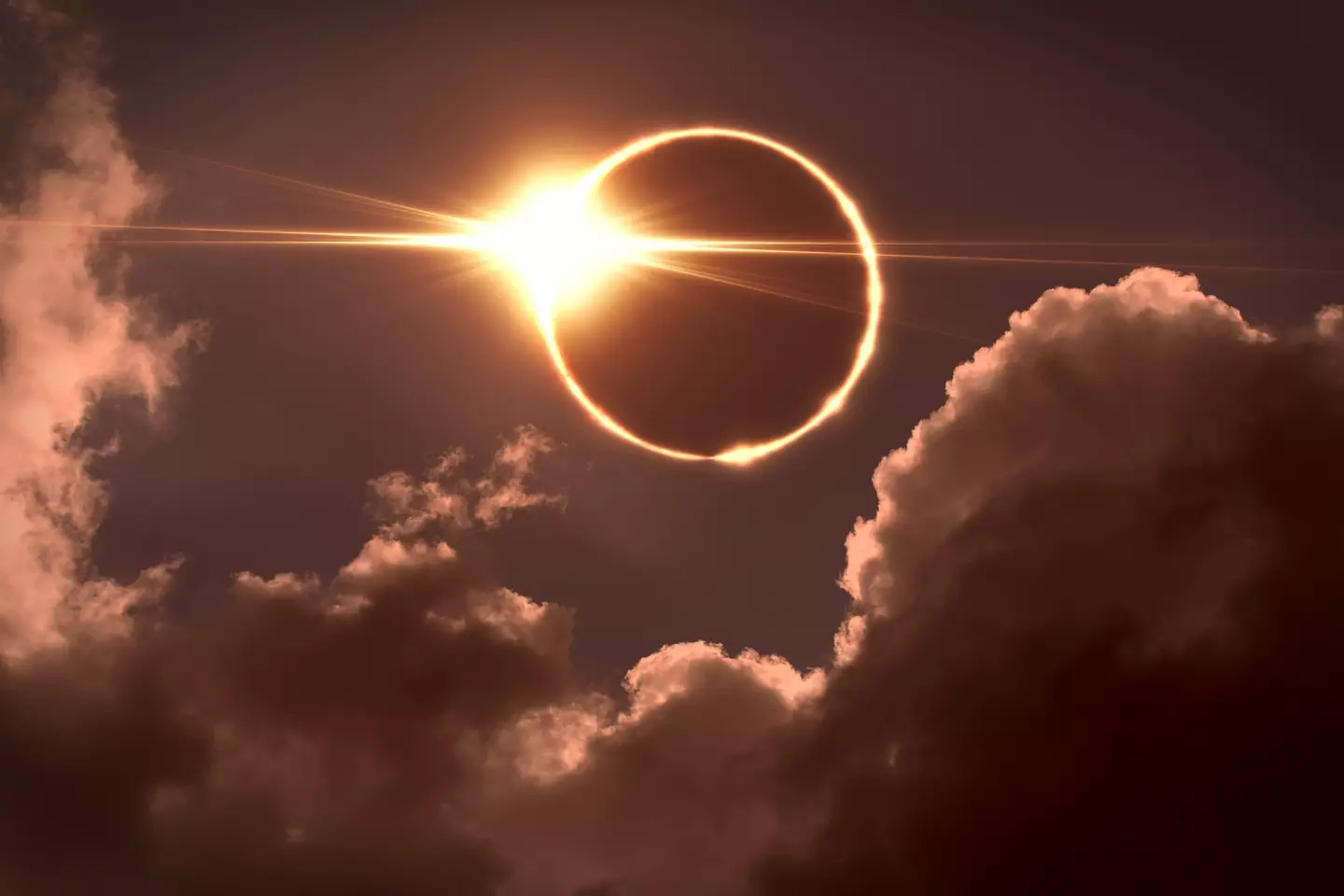
Today's the day. Star-gazers, space fanatics and just about everyone in between will be buzzing to know a pretty rare astronomical phenomenon will be gracing our skies tonight (8 April).
Yep, a total solar eclipse - which usually only happens about once every year or two - will be visible in parts of the world tonight.

Now, while that's all very exciting, it's important to remember health and safety when it comes to watching it.
Advert
So, we already know the deal about solar eclipses when it comes to our four-legged friends - but how can we, as humans, view the space spectacle safely?
Before we get into everywhere you can see the solar eclipse in the UK tonight, let's discuss a little more about the rare cosmic event.
There are between two and five solar eclipses each year with a total eclipse taking place every 18 months or so.
The total solar eclipse is set to cross North America, passing over Mexico, the United States and Canada.
Advert
It will begin over the South Pacific Ocean and will be passing through 13 states.

What is a solar eclipse?
For some context, a solar eclipse occurs when the Moon passes between the Earth and the Sun, blocking some or all of the Sun's rays from reaching the Earth.
Advert
It requires the Sun, the Moon and the Earth to be in just the right alignment for the Moon to cast a shadow on our planet.
And, when this happens, the Moon can cast two types of shadows; a partial solar eclipse, which covers only part of the Sun and the more dramatic total solar eclipse.
What will we be able to see in the UK?
Now, while it may be less dramatic across the pond, in the UK a partial eclipse will be visible in some parts of the country - where a little bit of the Sun is covered, and a small percentage is blocked out by the Moon.
Advert
This may be visible close to sunset, between about 7.50pm and 8.50pm.
Around six percent of the Sun will be obscured in Edinburgh, 12 percent in Glasgow, 28.1 percent in Belfast, and 3.1 percent in Liverpool.
Good news if you hail from Cardiff and Manchester as these two hotspots are among the British cities likely to have the best potential views, along with County Donegal in Ireland.

How to watch the eclipse safely
If you are lucky enough to be in a prime position to catch the eclipse, be sure to remember the cardinal rule when it comes to watching a solar eclipse: never look directly at the Sun.
Advert
Instead, viewers should be sure to don a pair of special solar eclipse glasses that are safe to watch the cosmic event through or, equally, grab some binoculars specifically made for observing the mighty Sun.
If you fancy yourself a bit of a DIY whizz then you could always make your own pinhole projector by piercing a hole in a piece of card before holding it up to the Sun and shining the light from the hole onto a second piece of card in front of it.
This nifty little process projects the entire version of the event in miniature in a safe and accessible way.
The next total eclipse of the Sun visible from the UK won't be for over another six decades in September 2090, and nearby there will be another one in 2026 that is visible in northern Spain, tracking up to Iceland.
The last time a total solar eclipse was seen from the UK was in 1999, although the only place to witness totality was Cornwall.
Happy gazing!
Featured Image Credit: Matt Anderson Photography/Getty Images/Spiderplay/Getty Images